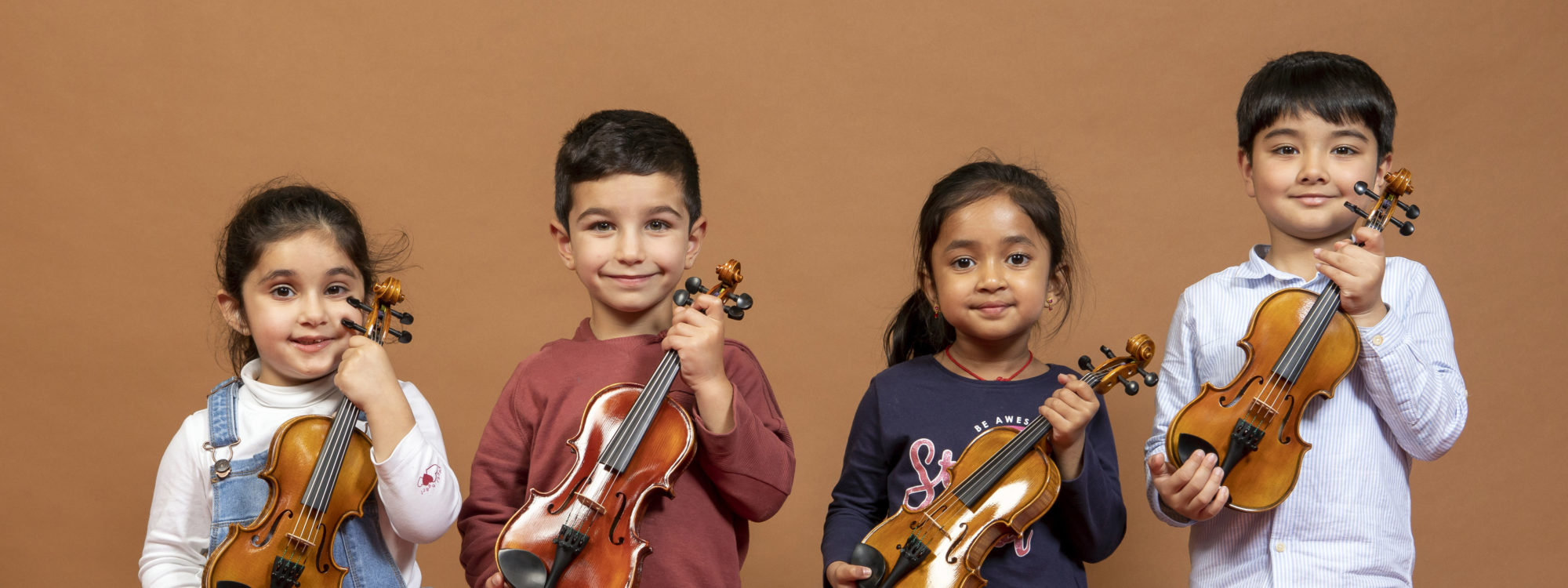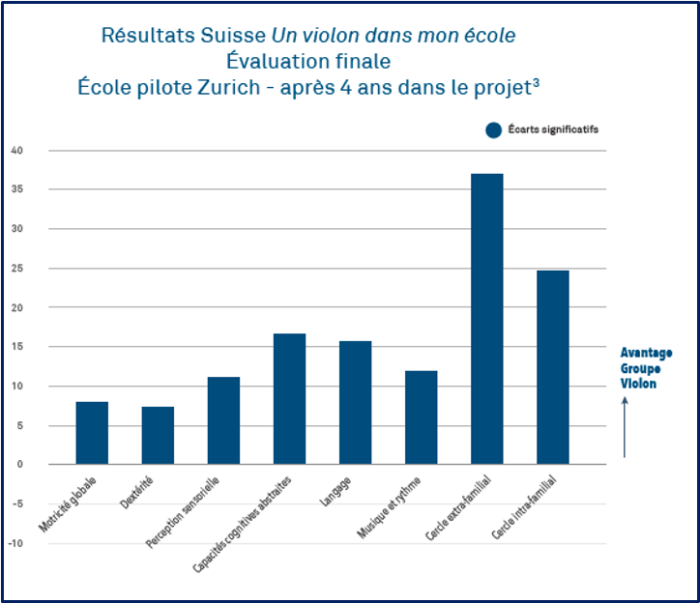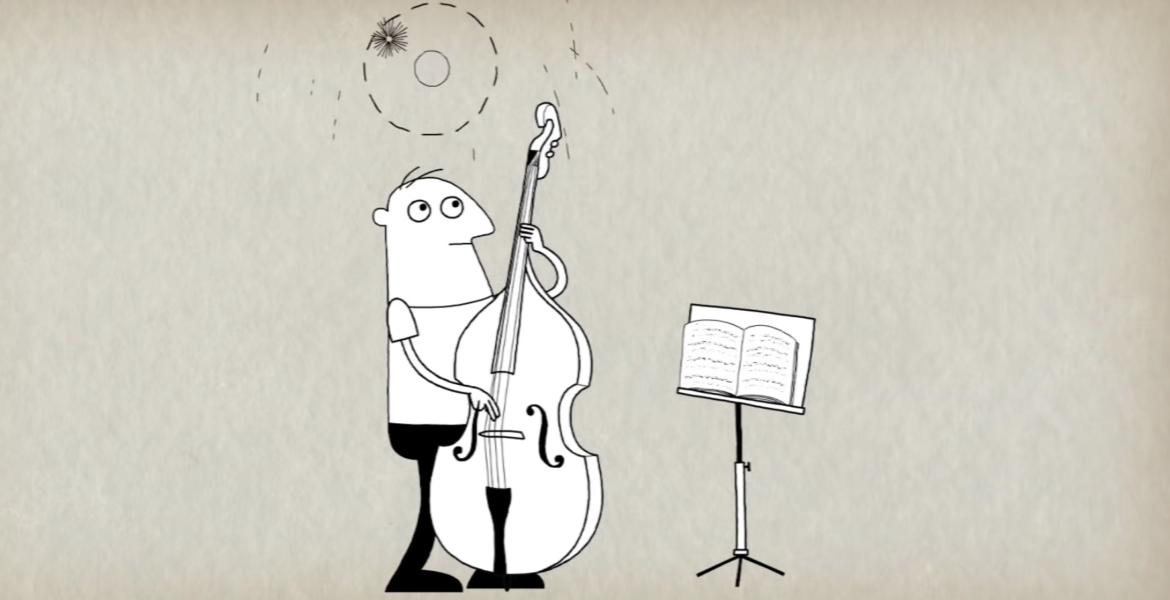
Measuring our impact
How playing music benefits brain development
Our A violin can change the world program is built on a scientific foundation that continues to be strengthened by experimentation and advances in neuroscience. Because of its many benefits for the brain, playing music acts as a catalyst in children’s cognitive development.
For many years, neuroimaging has shown that the brain is highly responsive to musical stimuli. Playing a musical instrument has a unique, fundamental property: it activates every area of the brain simultaneously and creates multiple interconnections. This is especially true for young children because of their remarkable level of neural plasticity. Multiple international studies have shown the benefits of playing music for children’s cognition and motor skills. Findings suggest that music improves verbal capabilities (J. Bolduc, 2006), acquisition of mathematical concepts (Bamberger, 2000), IQ test scores (Schellenberg, 2004) and memory performance (Lee et al., 2007), among other skills.
More recently, a study of 147 primary students in pilot schools in Amsterdam showed that when children took music lessons, they performed better in school and had significant improvement in memorization, concentration and verbal intelligence.
These studies underscore the value of our A violin can change the world program and are consistent with the results of a Swissocial study conducted for the Foundation in Switzerland. All of these findings have deepened our conviction that learning to play a challenging instrument like the violin benefits disadvantaged children, helping them close a development gap that holds them back before they ever walk into a classroom.
Scientifically proven impact
We’ve also arranged for our results to be measured scientifically by several independent sources.
In 2019, a team from France’s National Center for Scientific Research (CNRS) and the Paris Institute of Political Studies(Sciences Po) began a study that is unprecedented in its breadth and duration. It tracks two cohorts of children—1,200 participants and 900 non-participants—throughout our four-year program, analyzing and comparing changes in their cognitive and socio-behavioral skills.
We’ve also commissioned a study to measure the impact of A violin can change the world on the brains of young children. This project was placed with NeuroSpin, a neuroscience research center with ties to the CEA, the University of Paris-Saclay, and France’s National Institute of Health and Medical Research (Inserm).
Finally, a team of economists at the Paris School of Economics, a respected source for public policy evaluations, is assessing the project’s profitability for communities.

Impact study results
We piloted A violin can change the world in Switzerland, and evaluation of the pilot is now complete. During the four-year program, the cognitive, motor, sensory and social capacities of children in our program were assessed annually and compared to those of students in a control group.
Our young violinists showed better concentration and greater memory development than their peers, and they performed especially well in language acquisition—the foundation for learning to read.
How playing an instrument benefits your brain
By Dr. Anita Collins

